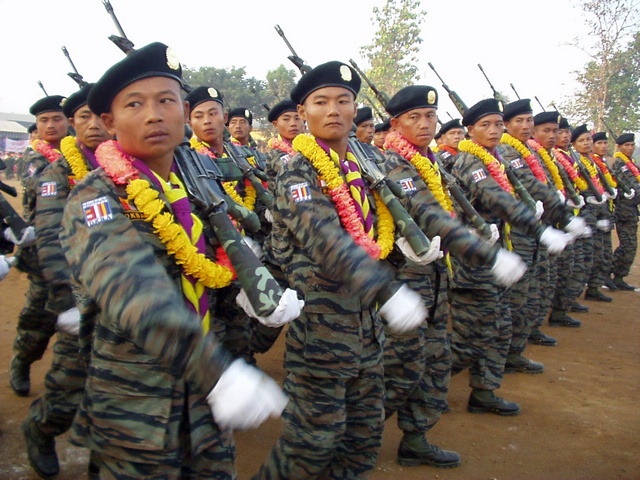More than 250 people, victims of online scam operations in Myanmar, were recently handed over to Thai authorities. This rescue is part of a broader crackdown on human trafficking and cyber fraud along the border between Myanmar and Thailand. The Democratic Karen Buddhist Army (DKBA), a key player in these efforts, has been instrumental in identifying and freeing these victims.
Crackdown on Scam Operations
Background on Scam Centers
Scam compounds have proliferated in Myanmar’s border regions, often staffed by foreigners who are trafficked and coerced into committing online fraud. These operations are estimated to be worth billions of dollars annually. The DKBA has been actively involved in raiding these centers to rescue victims.
Recent Rescue Efforts
In recent days, the DKBA handed over 261 foreign nationals to Thai authorities at the Phop Phra border checkpoint. These individuals were rescued from scam centers located in areas like Kyauk Khet and Shwe Kokko. The process involved transporting them by boat across a small river before they were received by Thai security forces for further processing.
Challenges Facing Rescued Victims
Trauma Experienced by Victims
Victims of these scams often face severe abuse, including being forced to meet high earnings targets under threat of torture. They are subjected to harsh conditions with minimal rest. Upon rescue, they undergo thorough screening using Thailand’s National Referral Mechanism (NRM) process designed for human trafficking victims.
Repatriation Process
Thai officials will question all rescued individuals about their experiences or involvement with trafficking networks. Those not implicated will be repatriated within weeks after coordination with their respective embassies. Others may face legal action if found complicit in scams.
International Cooperation Against Scams
Regional Collaboration Needed
The issue highlights the need for international cooperation against transnational crime networks operating across Southeast Asia. China has launched initiatives like the “Jingyao Joint Law Enforcement Operation” involving multiple countries to combat telecom fraud and related crimes.
Pressure from China
China’s pressure on Thailand follows incidents such as the abduction of Chinese actor Wang Xing from scam centers in Myawaddy Township. This pressure is believed to have influenced Thailand’s decision to cut off electricity and fuel supplies to areas controlled by ethnic armed groups along its border with Myanmar.









